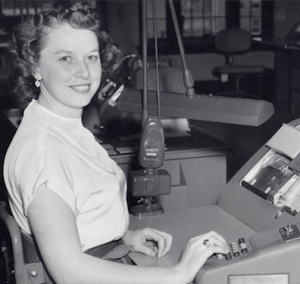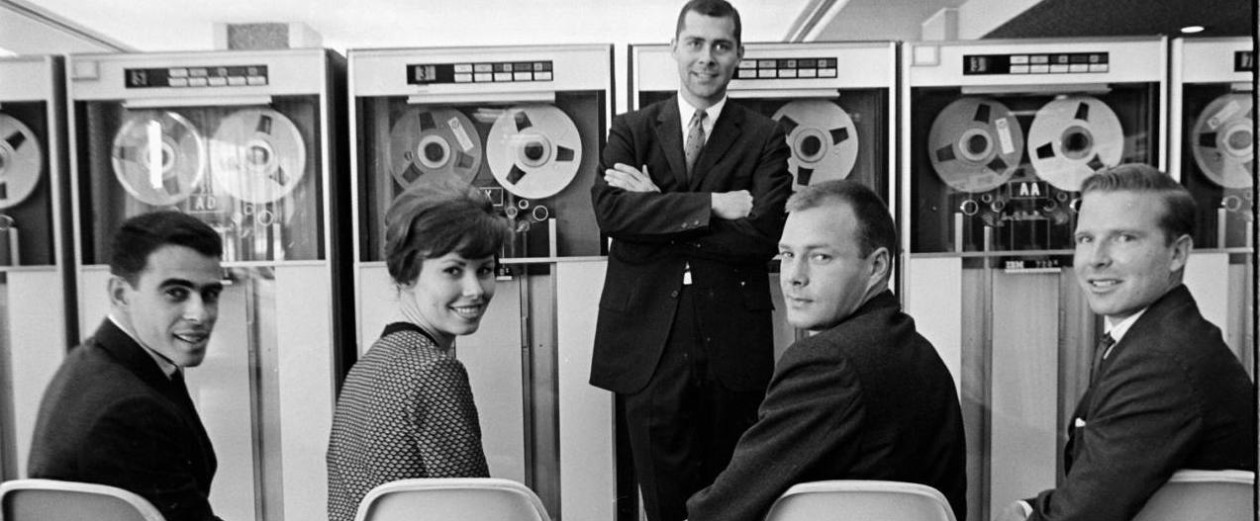 The story of the “computer boys” begins, intriguingly enough, with a group of women. Throughout the book the role of female computer programmers is described, as is the process by which computer programming was gradually made masculine. The question of gender in the computing fields, and in academic computer science in particular is still a pressing problem for educators, industry, policy-makers, and society in general.
The story of the “computer boys” begins, intriguingly enough, with a group of women. Throughout the book the role of female computer programmers is described, as is the process by which computer programming was gradually made masculine. The question of gender in the computing fields, and in academic computer science in particular is still a pressing problem for educators, industry, policy-makers, and society in general.
The following is from Chapter 8: Visible Technicians:
In 1969 the Data Processing Management Association presented Rear Admiral Grace Hopper with its very first “man of the year” award. That a professional society in a technical field would, in this period, even consider awarding its very first major award to a woman seems astounding to modern sensibilities. In the decades since the “ENIAC girls” became the world’s first computer programmers, the computer professions have become stereotypically masculine, and female enrollments in computer science programs have been declining since the mid-1980s. Participation rates for women in the computing fields are a perennial problem for the industry, and this has been the subject of much study and debate for the past several decades.
It was not always thus. As we have seen, women played an early and important role in the history of computing. Some of them became quite influential: in addition to Grace Hopper, Betty Snyder Holberton, Jean Sammet, and Beatrice Helen Worsley, among others, rose to positions of considerable prominence in the early computing industry … However, during this same period the computer programming community was also actively pursuing a strategy of professional development that would eventually make it one of the most stereotypically male professions, inhospitable to most women.
For more information on women in computing, see Gender Codes: Why Women Are Leaving Computing.

 Follow
Follow